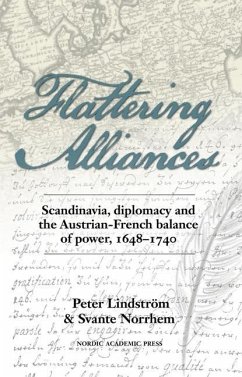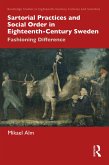At the same time as Denmark and Sweden were locked in a battle for supremacy in northern Europe, several other countries around Europe engaged in struggles for dominance. One conflict that had profound impact on much of the Continent as well as Scandinavia was the fight for hegemony between France and Austria after the Peace of Westphalia in 1648. In Flattering Alliances we learn about how those clashes dragged the Scandinavian kingdoms into European top-level politics, and forced them to take part in the diplomatic game, constantly negotiating risks and profits. The historians Peter Lindström and Svante Norrhem discuss the role of diplomacy, how the Great Powers bound allies to their side, and how the Scandinavian countries and their political elites responded. Much of the diplomatic strategising centred on family alliances, patronage, and economic politics -- something quite different from what we expect from today's official negotiations. This book will be invaluable reading for anyone with an interest in international relations in the early modern period, particularly in Europe, as the authors take a fresh look at the history of diplomacy and the nature of state formation.
Hinweis: Dieser Artikel kann nur an eine deutsche Lieferadresse ausgeliefert werden.
Hinweis: Dieser Artikel kann nur an eine deutsche Lieferadresse ausgeliefert werden.








